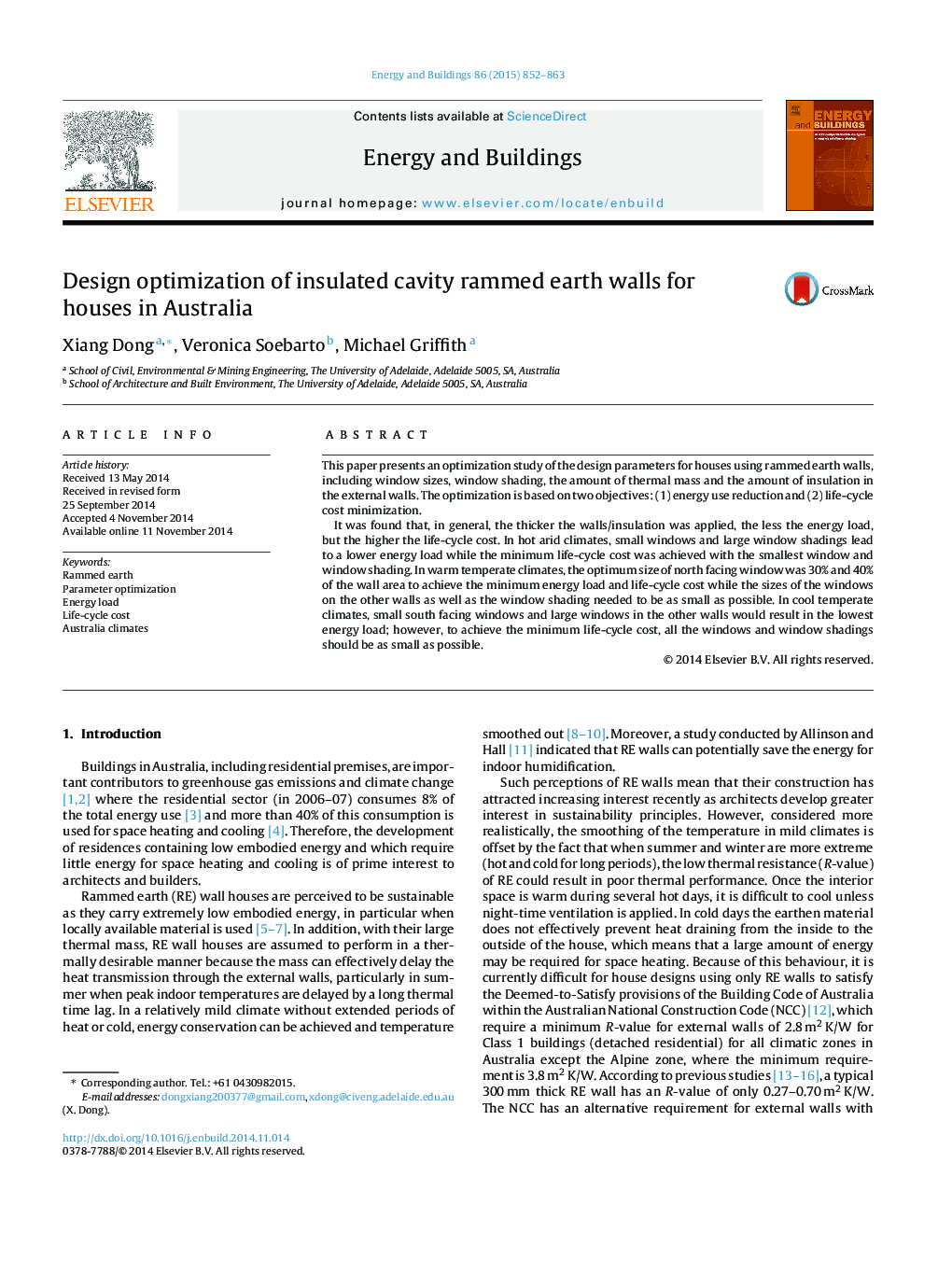| Article ID | Journal | Published Year | Pages | File Type |
|---|---|---|---|---|
| 6733111 | Energy and Buildings | 2015 | 12 Pages |
Abstract
It was found that, in general, the thicker the walls/insulation was applied, the less the energy load, but the higher the life-cycle cost. In hot arid climates, small windows and large window shadings lead to a lower energy load while the minimum life-cycle cost was achieved with the smallest window and window shading. In warm temperate climates, the optimum size of north facing window was 30% and 40% of the wall area to achieve the minimum energy load and life-cycle cost while the sizes of the windows on the other walls as well as the window shading needed to be as small as possible. In cool temperate climates, small south facing windows and large windows in the other walls would result in the lowest energy load; however, to achieve the minimum life-cycle cost, all the windows and window shadings should be as small as possible.
Related Topics
Physical Sciences and Engineering
Energy
Renewable Energy, Sustainability and the Environment
Authors
Xiang Dong, Veronica Soebarto, Michael Griffith,
